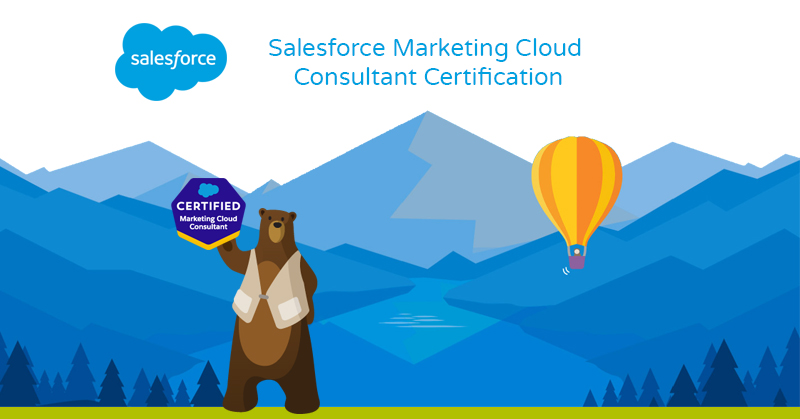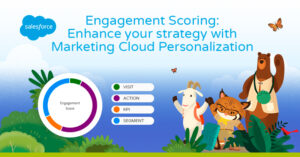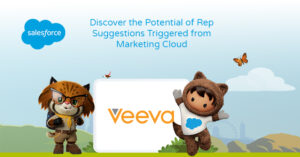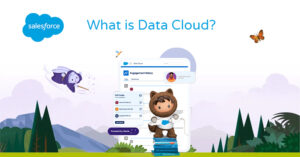Are you looking to take the last step on your path to becoming a Marketing Cloud expert? If so, keep reading to learn everything you need to know about consultant certification.
Everything you need to know about the Cloud Marketing Consultant exam
All Salesforce certifications require prior study and training, but the Cloud Marketing Consultant certification is considered one of the most complicated to obtain due to all the previous knowledge you need to have about Cloud Marketing, the complicated questions, the case studies and the technical difficulty.
If you want to apply, the first thing you need is to get the Marketing Cloud Email Specialist certification. You can find more information about it here (enlace al artículo del blog nuestro). I strongly recommend that you also get the SFMC Administrator certification. While it’s not mandatory, it will help you understand the marketing platform and make it easier for you.
Secondly, let’s take a closer look at what the exam consists of. Like almost all Salesforce certifications, it is a test of 60 questions (plus 5 that are not scored) that you must answer in 105 minutes without the help of any kind of material or external agent. These questions are related to various topics in the Marketing Cloud world, but their importance in the exam (the percentage) varies depending on the exam and the edition itself. If you are applying for the Winter 22 Marketing Cloud Consultant edition, these are the current rates:
- Discovery & Architecture: 16%
- Integration: 20%
- Account Configuration: 12%
- Automation: 20%
- Data Modeling & Management: 21%
- Messaging: 11%
As a recommendation, focus on preparing as well as possible those blocks that are most important, because they will have the most questions on the exam. To do so, read on and find out where to get free SFMC Consultant exam questions.
How to prepare yourself to become a SFMC Consultant
As you know, the Salesforce platform itself offers courses and preparations that you can find in Trailhead (here I show you one with the study guide included).
Another very interesting place is the Trailbazer Community. There you will find accurate questions from the exam and, above all, discussions about the correct answers. This exam is famous for the ambiguity of its questions, and it is interesting to be a member of this community to see how people solve the questions and in what way you can deal with them whenever you take the exam. If you are interested in joining, here is one of the forums about Consultant exam questions.
My experience confirms that this is not enough to get this certification. Salesforce recommends you to have at least 6 months of experience in implementing technical solutions in Marketing Cloud projects. And still, I think that the key of this exam is not only about your knowledge of the tool, but also about learning the type of questions or how to deal with them. For that, you can make use of academies like Udemy, that will provide you with extensive and detailed courses in which you will see each of the modules of which the exam is composed. Of course, always paying. You can also find others like Salesforce Help & Training.
What you should know about each module
1. Discovery & Architecture
This module is practically based on your experience with Marketing Cloud. The questions will be about case studies that ask you to find a solution with the tool. If you have not faced it in real life, it will be difficult for you to do it in an exam.
You will need to know how to manage the available information to achieve the most accurate audience segmentation strategies possible, as well as long-range technical solutions for the maintenance of these strategies.
2. Integration
As the name suggests, you will be presented with use cases on Marketing Cloud Connect integration. Again, your own experience with the platform will be what will make you pass them.
3. Account Configuration
Something quite similar to what you could find in the Marketing Cloud Administrator Certification, it is much easier to prepare since you can study it but it is no less important. The Marketing Cloud account configuration is the basis of any project you are going to do. My advice: check basic but very necessary concepts such as SAP, Reply Address Management, etc.
4. Automation
It is one of the most important modules, but also one of the easiest in my opinion. You must think about what kind of activities you have to do with an automation for a specific journey or case study. Familiarize yourself with SQL code and Scripts, because you will need it for this block. If you are scared of code because you are not very technical, lose your fear of it. From my point of view, automation is one of the great advantages of Salesforce. The sooner you know about how to use it yourself (with your own codes and developments) the more self-sufficient you will be and, therefore, the better projects you will do.
5. Data Modeling & Management
If I could choose one vital module in Marketing Cloud, it would be this one. Not only because it is the one that occupies the largest percentage, but also because it is very important that you understand in depth the data model you are working with, the implications it has on the records and the possibilities it gives you for the scope of your project(s).
Here’s another unsolicited tip: if you want to be a good Marketing Cloud consultant, investigate this module and double check what level of knowledge you have about the data model you are using and how fields and objects are connected to each other, because it is the basis of everything.
6. Messaging
Finally we come to the last module of this exam, and certainly the easiest. You will see questions about how to personalize and individualize communication campaigns. This is already covered in previous certifications such as Administrator (enlace al artículo del blog nuestro) or Email Specialist, although in a more basic way.
I hope these tips have helped you to learn a little bit more about the certification and you are ready to learn about the world of Cloud Marketing Consulting. It requires effort, but you will also get a great compensation: to be a better professional in your industry. There are some certifications that do not provide great knowledge, but not in this case. So: Remember! When you are preparing yourself for it, keep in mind that it is not “just another certification” and that’s all. SFMC Consultant certification is really useful and you can take advantage of it for your future projects.





